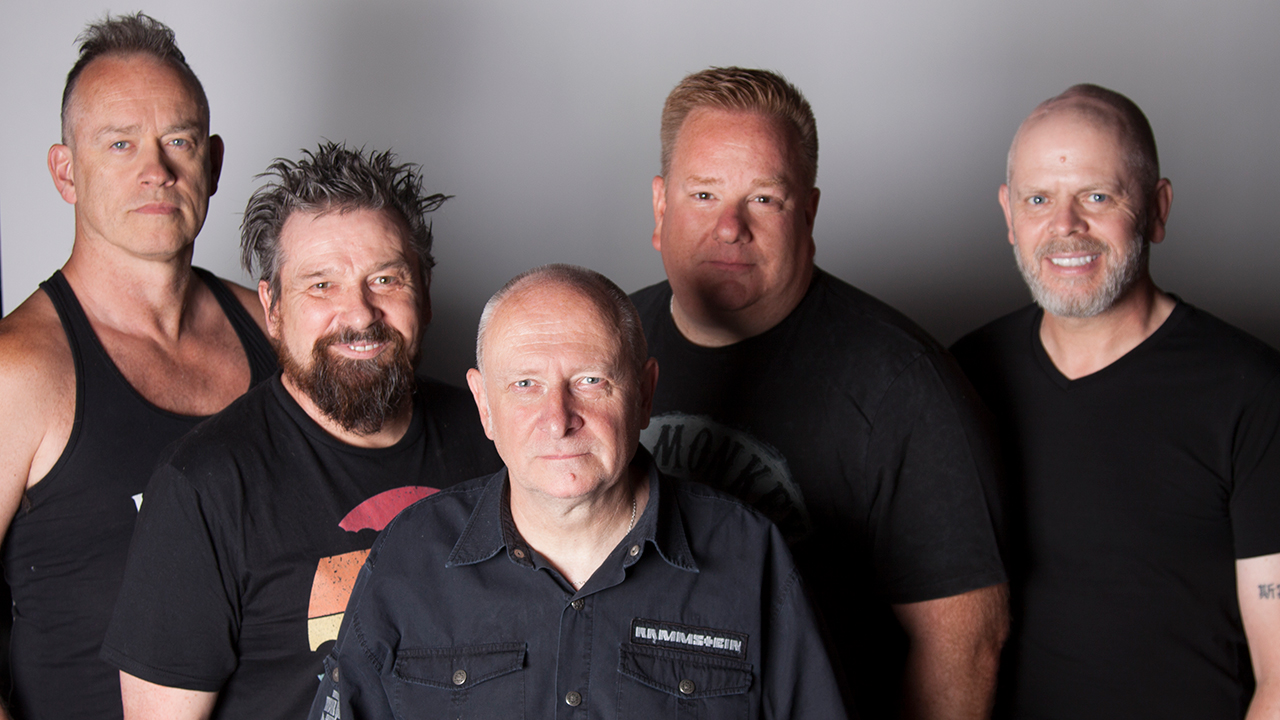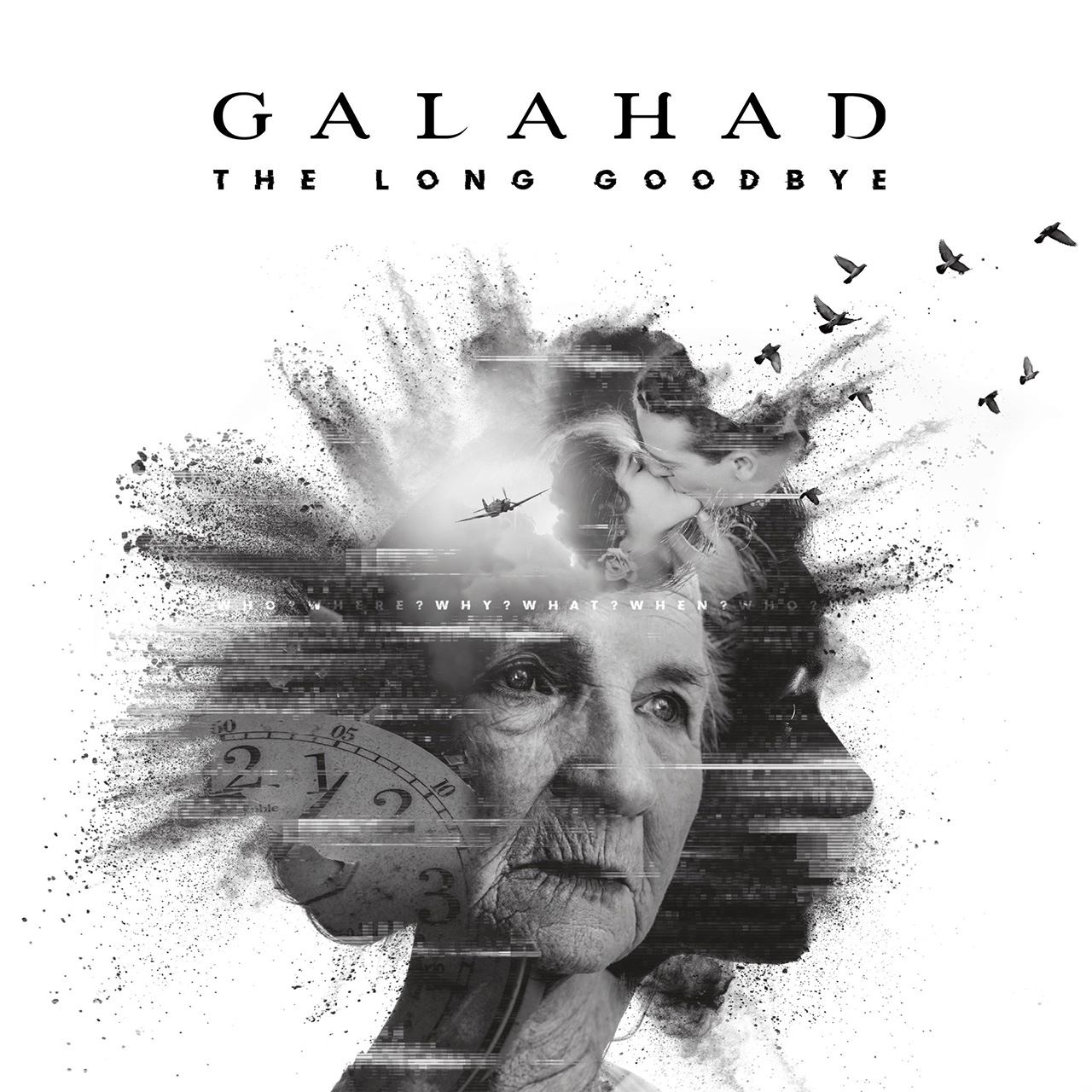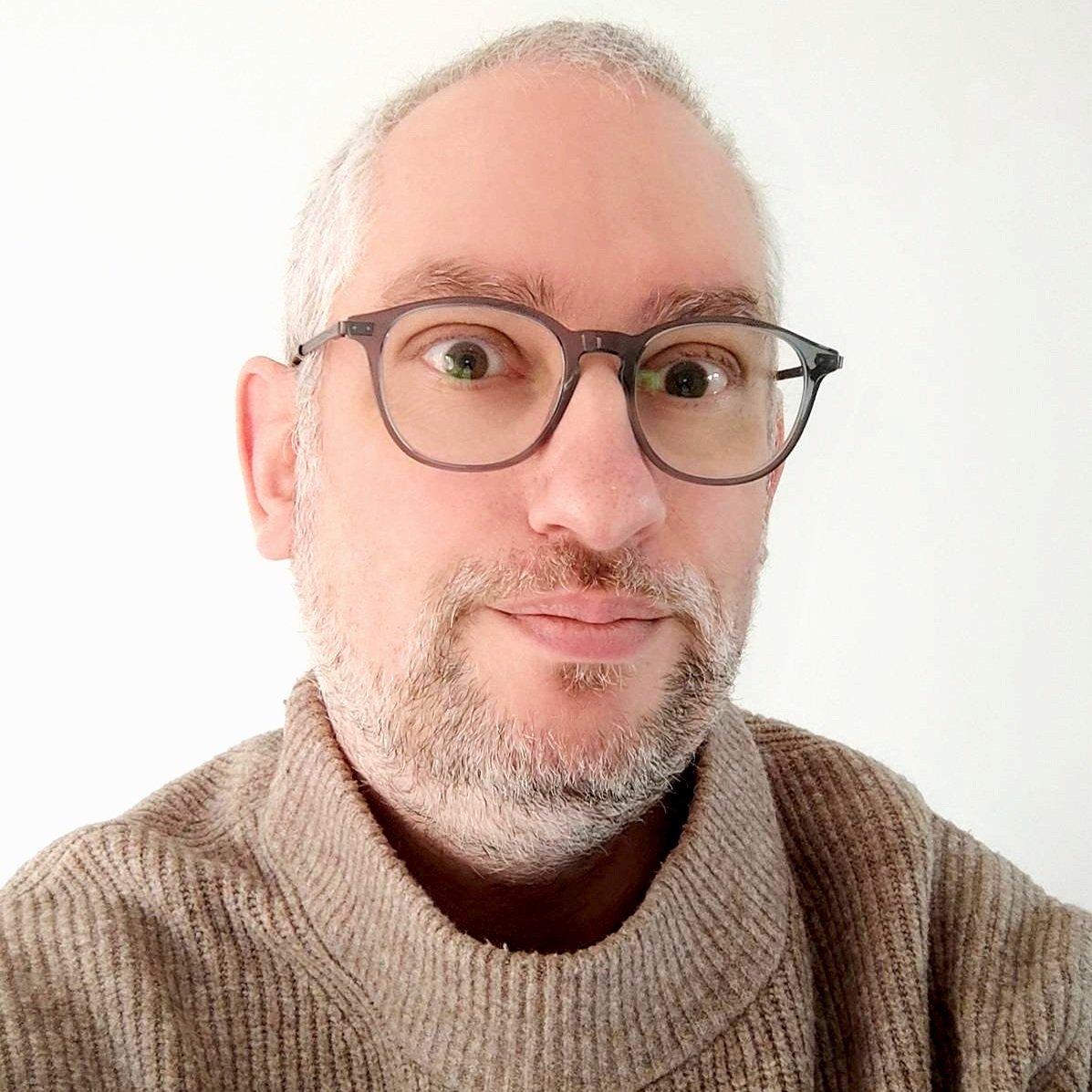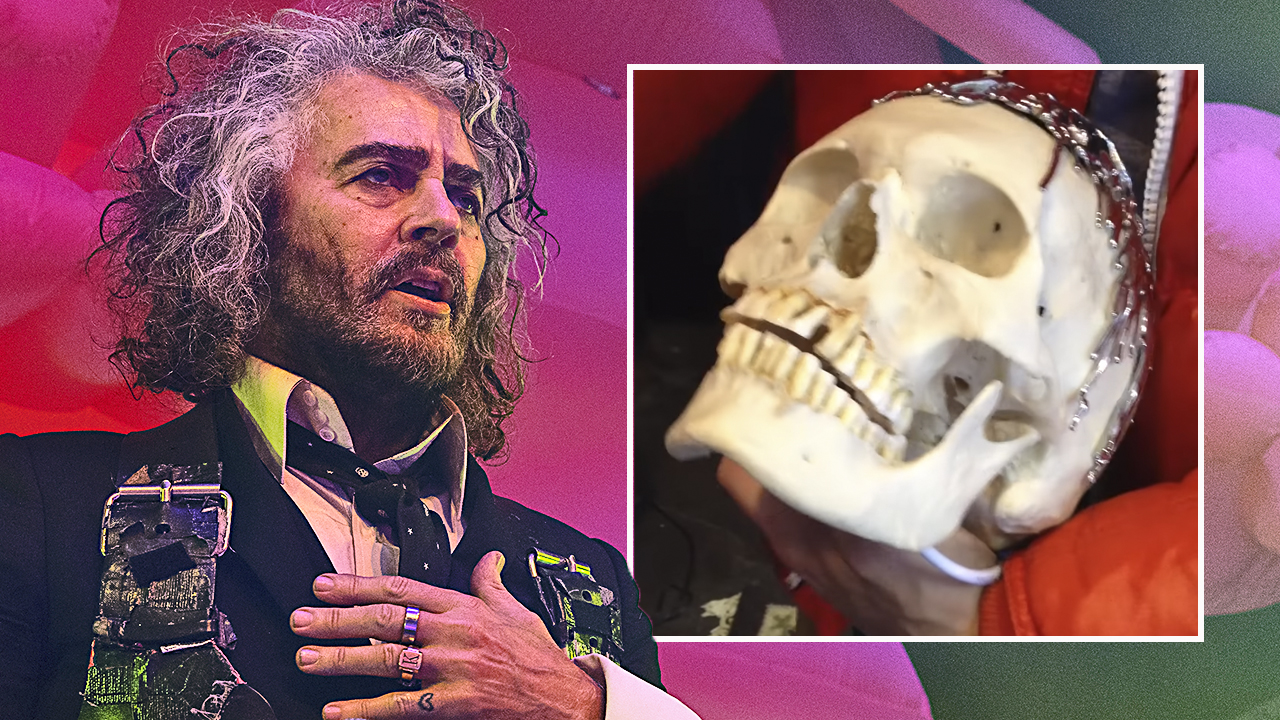“Vinyl is slightly cheaper to manufacture in Poland, but all the big companies have cottoned on… it’s taken six months to get The Last Great Adventurer pressed”: Galahad on how to keep working as an independent band
Decisions have been forced upon them as they approach their 40th anniversary - but some of the results turned out to be positive

As they approach their 40th anniversary, Galahad are facing new challenges as an independent British band. New release The Long Goodbye finds them with a stable line-up and embracing modified recording techniques. Vocalist Stu Nicholson and keyboard player Dean Baker tell Prog about their plans to keep pressing on.
The last few years have been turbulent for the music industry, with Brexit, Covid and the rise to dominance of streaming services shaking up the landscape. Having been a going concern since 1985, and remarkably consistent in their output, prog rockers Galahad have seen it all. They’re now back with a new album, The Long Goodbye, a companion record to 2022’s stirring The Last Great Adventurer.
“Enthusiasm,” says co-founding vocalist Stu Nicholson, when asked what’s driven his personal journey into the business, which started – appropriately enough – with hearing Genesis for the first time. “In the late 70s,” he recalls, “I remember very clearly being at a friend’s house and we were playing pool. We were a bit drunk, and I was sitting under the table. He put on Selling England By The Pound and I heard the first words: ‘Can you tell me where my country lies.’ I just loved it. And I was hooked.”
Fast forward a few years and prog, as Nicholson rightly observes, “was a bit of a dirty word.” The 80s were the glory days of post-punk and new wave, but Nicholson was undeterred. “Roy [Keyworth, a fellow founding member] wanted to set up a band that was progressive rock,” he says, “because there were literally no other groups like that in the area. And so he did. I answered an ad. We all got on and, as they say, the rest is history.”
Dean Baker, by contrast was a later addition to the band, and also a latecomer to prog. “I was a massive Beatles fan,” the keyboard player explains. “I was into a lot of new romantic bands.” Fate intervened in ’96, when an acquaintance working at a nearby studio put Baker onto a local band seeking a keyboardist. That band were Galahad. “I went up and met Stuart and Roy and we just hit it off.”
They went straight to work on Following Ghosts and, although receiving a prog education “on the job,” Baker was impressed by the freedom. “What was amazing to me is that Stu and Roy were very much: ‘Off you go, do something. You have complete free rein. If you want to make the intro three minutes long, make it three minutes long.’” Released in ’98, Following Ghosts was remastered in 2007, with an expanded edition appearing in 2020. It remains a fan favourite.
Speed ahead 25 years and Galahad have undergone further line-up changes, but have a settled roster of Nicholson, Baker, Spencer Luckman (drums), Lee Abraham (guitars) and Mark Spencer (bass). As was the case with The Last Great Adventurer, much of the music for The Long Goodbye was recorded during lockdown, which necessitated a change of approach.
Sign up below to get the latest from Prog, plus exclusive special offers, direct to your inbox!
“I had already set myself up with Pro Tools,” says Nicholson, “but it came into its own during the Covid emergency. We’d started work on new material, then of course everything stopped.” Galahad, however, decided to keep at it. “We’ve all got set-ups at home,” says Baker, “so we could remotely do most of the work.”
As the pair explain, although adapting to this new way of working was challenging, it also brought some unexpected benefits. “For vocals,” says Nicholson, “I did lots of different takes. And it’s quite unnerving doing it on your own, because you haven’t got anyone to say, ‘Well that doesn’t sound right.’”
The singer recorded over rough demos, which Baker would shape around the vocals, an approach that Nicholson ultimately found rather liberating. “I had time to experiment,” he says, “which is something I’ve never really done in the studio, because you’ve always got the clock ticking.”
Despite their longevity, Galahad have always managed to sound fresh, and this new method has clearly added a little extra. With the various contributions collated, the results were sent off to audio engineer Karl Groom, whom Nicholson describes as “a musical alchemist.” Ending up with an abundance of strong material, Galahad decided to split the results over two albums, The Last Great Adventurer and The Long Goodbye.

Although neither is a concept album as such, both records contain unifying elements. “Sometimes the music just has a life of its own,” muses Nicholson. “Suddenly you realise that there’s some kind of connection between these songs, which, when you’re writing them, you’re not aware of.”
Since the departure of Roy Keyworth, Nicholson and Baker have taken on chief songwriting duties; but this is a band that, despite a rich past, are always looking to move ahead. “Now we’ve got a pretty stable line-up, it’s quite exciting,” adds Nicholson. “We’re looking forward to writing with Lee, who is a great writer, and also Mark, our bass guitarist, who has lots of ideas.”
Galahad are relishing a return to live playing. They have dates set up in the UK, with hopefully more to follow in Europe, despite the spiralling costs post-Brexit. “Visas are a big problem,” admits Nicholson. Which brings us round to the thorny subject of making a living as an independent act.
Since their earliest days, Galahad have released music via their own label, Avalon. Such freedom brings its own headaches, however as all their CDs and vinyl are produced via a plant in Poland. “Vinyl is slightly cheaper to manufacture over there,” the singer explains, “but all the big companies have cottoned on to it, so the pressing plants have been clogged up by big artists wanting to press hundreds of thousands of albums.” When Galahad first returned to vinyl, issuing an album took six to eight weeks. Now, Nicholson reveals, “It’s taken six months to get The Last Great Adventurer pressed.”
Then there’s the internet. “In one way it’s great,” observes Nicholson, “because it means that you’re on the same level as big bands. You’ve got the same opportunities to get your stuff out there. The problem is, there’s so much available that the market is completely saturated. It’s a very strange situation.”
Both Nicholson and Baker express doubts as to the benefits of streaming services, but being a band with loyal fans gives Galahad an edge. “We’re lucky,” says the vocalist, “in that our fan demographic has sort of grown old with us and are still interested in buying physical formats.”
He also speaks highly of distribution site Bandcamp, “because they pay reasonable rates, far better than some of the other platforms. But we encourage people generally to buy directly from our own website.”
”It’s so disheartening to see streaming now,” adds Baker, “but even I’m guilty of it. I have every album by Muse except the last one, because I can listen to it via streaming.”
“I’d hate to be a new band,” adds Nicholson, “I don’t know how you can even contemplate making a living out of this any more. You’ve got the whole touring thing, but it’s a fine line. Even some of the bigger bands are saying that their productions cost so much that they only just about break even. But, of course,” he adds, whimsically, “most of those have already made their money, so it doesn’t matter.”
Nicholson and Baker end with a tantalising hint as to future projects. “We’ve got a lot of new material we’ve been working on,” says Nicholson, “and we’ve also started an EP of covers of American artists.” Those artists tentatively include The Flaming Lips, Bruce Springsteen and Johnny Cash.
In their fifth decade, then, Galahad continue to seek new modes of expression, and look set to remain a vital force for some time.
Chris Wheatley is an author and writer based in Oxford, UK. You can find his writing in Prog magazine, Vintage Rock, Longreads, What Culture, Songlines, Loudwire, London Jazz News and many other websites and publications. He has too many records, too many guitars, and not enough cats.

